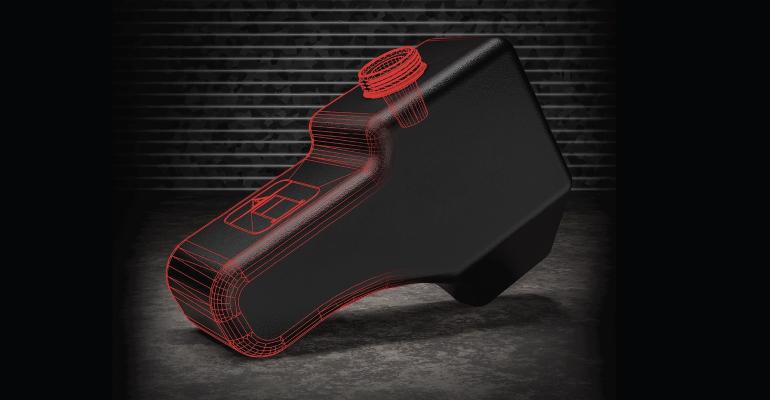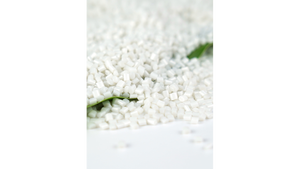‘Robo-molded’ Fuel Tank Scores Product of the Year Award
The Association of Rotational Molders recognized the fuel tank and Gemstar’s robotic rotational molding technology, a precision process that reportedly achieves elevated levels of tolerance and design freedom for hollow products.
November 26, 2023

A specialized fuel tank manufactured using Robomold rotomolding technology has earned the Association of Rotational Molders (ARM) 2023 Product of the Year award. Gemstar Manufacturing’s fuel tank features an anti-spill funnel in the filler spout in order to comply with EPA guidelines, which was displayed in the entry sample via a cutaway that revealed the internal features of the tank.
The fuel tank employs Hostaform POM RF polyacetal resin from Celanese to deliver toughness and rigidity, temperature resistance, wear resistance, and low fuel permeation, while Gemstar’s Robomold robotic rotational molding technology provides precision repeatability necessary for highly specialized custom parts. Robomold technology is said to produce tighter tolerances, design flexibility, and high control compared with traditional rotational molding.
The EPA/CARB-compliant tank is molded in a precise process that allows for optimization of material and reduction of processing time by up to 50% compared to the industry average (27% for the fuel tank). A nearly endless array of fuel types can be accommodated, and the streamlined design is realized through a single-layer solution, contrary to other options on the market.
Robomold technology achieves high tolerances with precision-distributed heat and material control for consistent plastic part repeatability and optimized strength-to-weight ratios. The technology reportedly allows for design flexibility, including the ability to layer different compounds and coatings into finished parts. In-house tool design is also critical for controlled and focused heat to specific areas on the funnel feature, thereby achieving improved threading and accounting for changes in wall thickness.
About the Author(s)
You May Also Like




